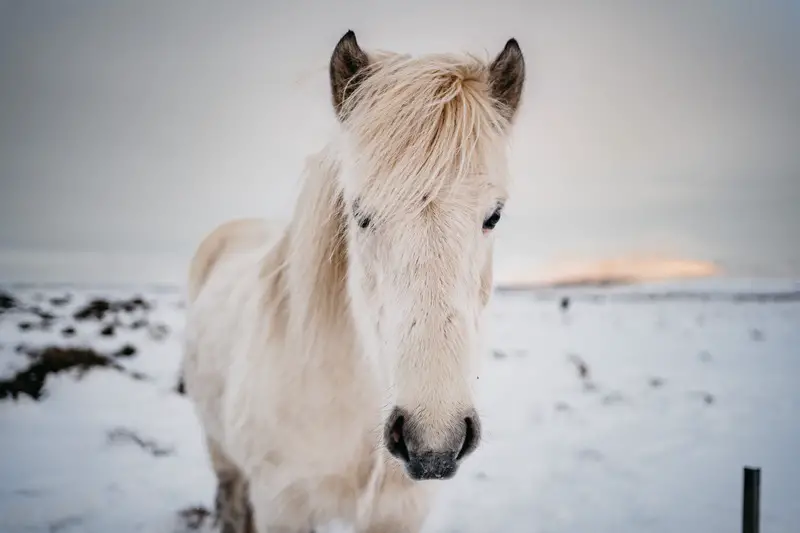Introduction: The question of horses and cold weather
As horse owners, we all want to make sure our equine friends are comfortable and healthy in all types of weather. One of the most common concerns in the winter months is whether horses can stay outside in the cold. While horses are naturally adapted to living in a range of temperatures, it’s important to understand their physiology and provide appropriate care to ensure their well-being.

Understanding the physiology of horses
Horses are warm-blooded animals, which means they can regulate their body temperature to some extent. They also have a large body mass and a thick coat of hair, which helps them generate and retain body heat. However, horses are not as well-suited to extreme cold as some other animals, such as polar bears or arctic foxes. In order to stay warm, horses require access to shelter, food, and water.
The role of a horse’s coat in cold weather
A horse’s coat is an important factor in keeping them warm in cold weather. Horses grow a thicker winter coat as the days get shorter, which provides insulation against the cold. However, this coat can only do so much if the horse is exposed to extreme temperatures or wet conditions. If a horse is clipped or has a thin coat due to illness or age, they may require additional protection such as blankets or shelter.
Assessing the temperature limits for horses
While horses can handle cold temperatures to a certain extent, it’s important to monitor them closely and take appropriate action if the weather becomes too severe. Temperature limits can vary depending on factors such as wind, humidity, and precipitation. As a general rule, horses can tolerate temperatures down to around 15-20 degrees Fahrenheit, but lower temperatures may require additional care.
Providing shelter for horses in cold weather
Providing shelter is essential for keeping horses safe and healthy in cold weather. This can include a stable, barn, or run-in shed where the horse can escape from the wind, rain, or snow. The shelter should be large enough for the horse to move around comfortably, and should be well-ventilated to prevent the build-up of moisture and ammonia from manure.
Feeding horses during the winter months
In cold weather, horses require more calories to maintain their body temperature and energy levels. Providing high-quality hay and access to fresh water is essential for keeping horses healthy in the winter. In some cases, additional grain or supplements may be necessary if the horse is struggling to maintain weight or energy.
Keeping horses hydrated in cold weather
Horses can be at risk of dehydration in the winter if their water source freezes over or they are not drinking enough. Providing heated water buckets or tank heaters can help prevent this issue. It’s also important to monitor horses for signs of colic, which can be more common in the winter due to changes in diet and water intake.
Exercise and activity for horses in cold weather
Horses still require exercise and activity in the winter, but it’s important to take precautions to prevent injury and ensure their safety. This may include warming up slowly, avoiding icy or slippery footing, and providing appropriate protection such as leg wraps or boots.
Monitoring horses for signs of hypothermia
Hypothermia can be a serious risk for horses in extreme cold, and it’s important to monitor them closely for signs of this condition. Symptoms can include shivering, lethargy, and a decreased appetite. If you suspect your horse may be suffering from hypothermia, seek veterinary care immediately.
Conclusion: Best practices for keeping horses safe in the cold
While horses are well-adapted to living in a range of temperatures, it’s important to take appropriate steps to ensure their safety and comfort in the winter. Providing shelter, high-quality food and water, and monitoring for signs of hypothermia are essential for keeping horses healthy. By following these best practices, you can help your equine friends stay happy and healthy through the winter months.
